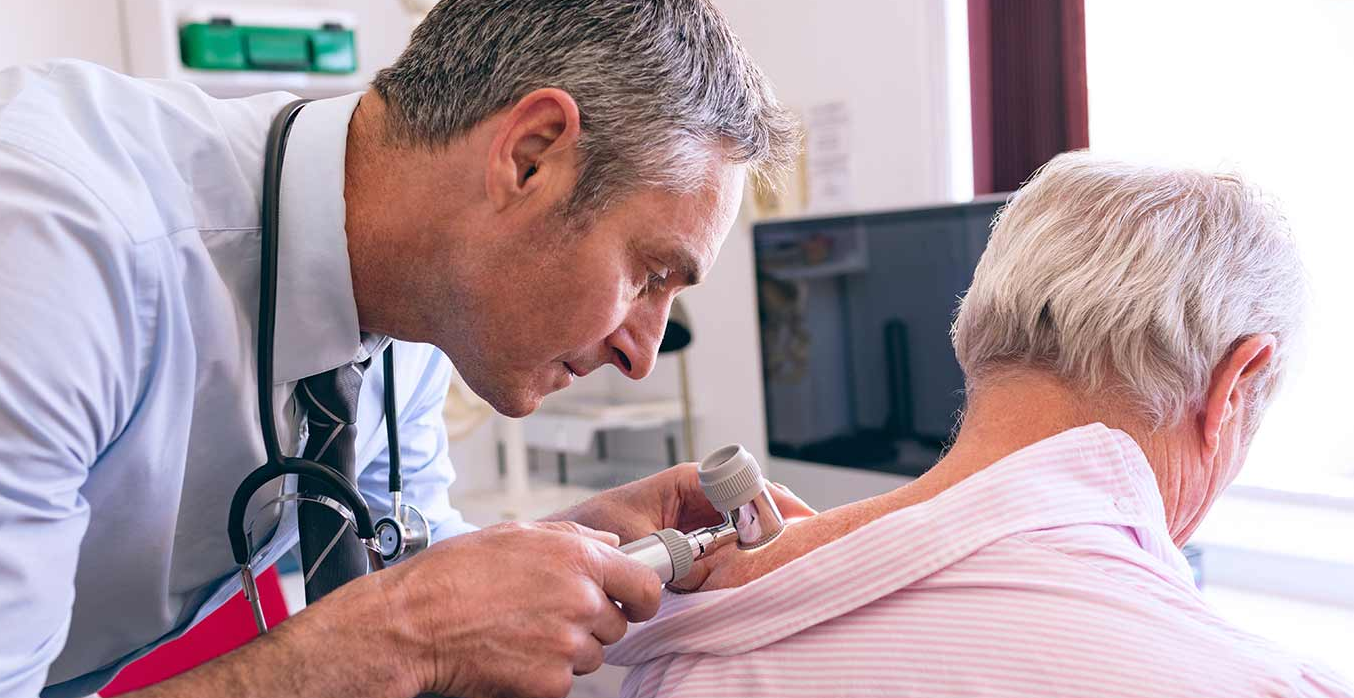Get Screened

Cancer screening is a critical component of finding cancer early, before any symptoms occur. By detecting signs of cancer as early as possible, it can be easier to treat.
There are many kinds of screening tests that check for cancer. It’s important to know which tests you are eligible for to stay up to date with these life-saving approaches to preventing and treating cancer early.
Contact your primary care provider to schedule a screening.
| Cancer Type | Who should get screened? | How often should I get screened? | What screening tests are most commonly used? |
| Breast |
|
Yearly |
|
| Cervical | Women 21 and older |
|
|
| Colorectal |
|
|
|
|
Lung |
Men and women ages 50 and older who are current or former heavy smokers |
Yearly |
Low-dose computed tomography, which uses an X-ray to take detailed pictures of the inside of the body |
| Skin |
|
Talk to your healthcare provider or dermatologist about the best screening schedule for your needs. | Skin check performed by a healthcare provider or dermatologist |
| Prostate |
Talk to your healthcare provider about whether or not you would benefit from prostate cancer screening. |
Talk to your healthcare provider about the best screening schedule for your needs. |
A blood test called a prostate-specific antigen (PSA) test, which measures the level of PSA in the blood |
Cancer Screening FAQs
Early stages of cancer may not lead to symptoms, meaning you can be unaware of the developing disease. By keeping up with regular cancer screenings, your healthcare provider can look for early signs of cancer that would otherwise go unnoticed.
For some screenings, it’s helpful to compare past and current tests to detect changes. For instance, yearly mammograms make it easier for a radiologist to find subtle changes in the tissue, which can be early signs of breast cancer.
Cancer screenings include blood tests, imaging tests (like mammograms and CT scans), and tissue samples. Some are completely painless, while others can cause temporary discomfort.
However, screening tests can prevent advanced forms of cancer, which can require uncomfortable and time-consuming treatments. A quick screening test now can prevent health problems in the future.
There are many factors that can put you at a higher risk of developing cancer. Some you can control (like smoking) and others you cannot (like family history).
Other factors that help determine your risk include:
- Your own health history, including your age and your diet
- Taking certain medications, like combined hormone replacement therapy
- Your body mass index (BMI)
- How much alcohol you drink
Talk to your healthcare provider about your personal and family health history to help determine if you’re considered high risk for a certain type of cancer. This may make you eligible to begin cancer screening earlier.
How to Get Screened
You may need a referral to get a cancer screening. Start by talking to your primary care provider about which screenings are right for you and the next steps for scheduling an appointment.
Contact one of our LSU LCMC Health Cancer Center Hospitals to get started.
